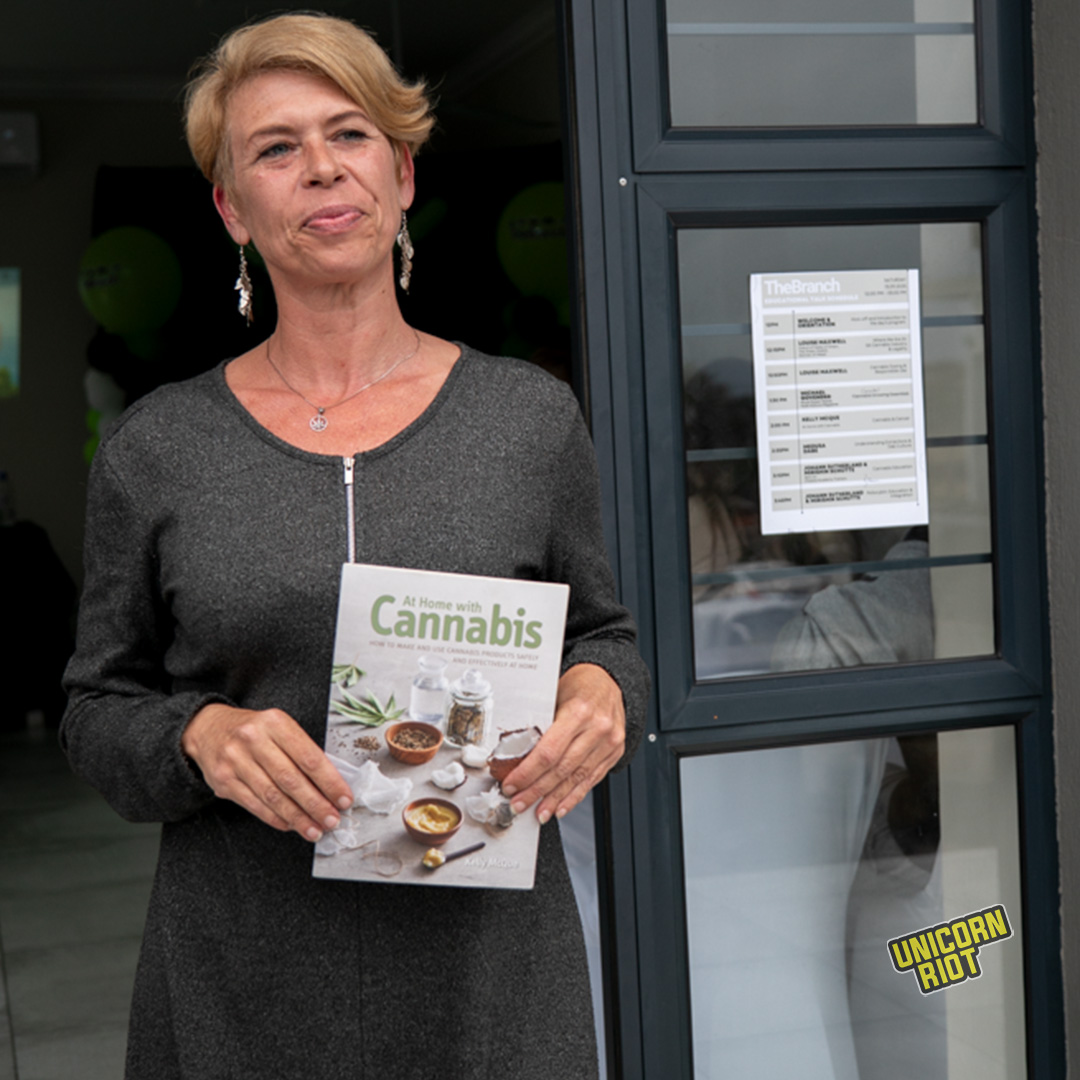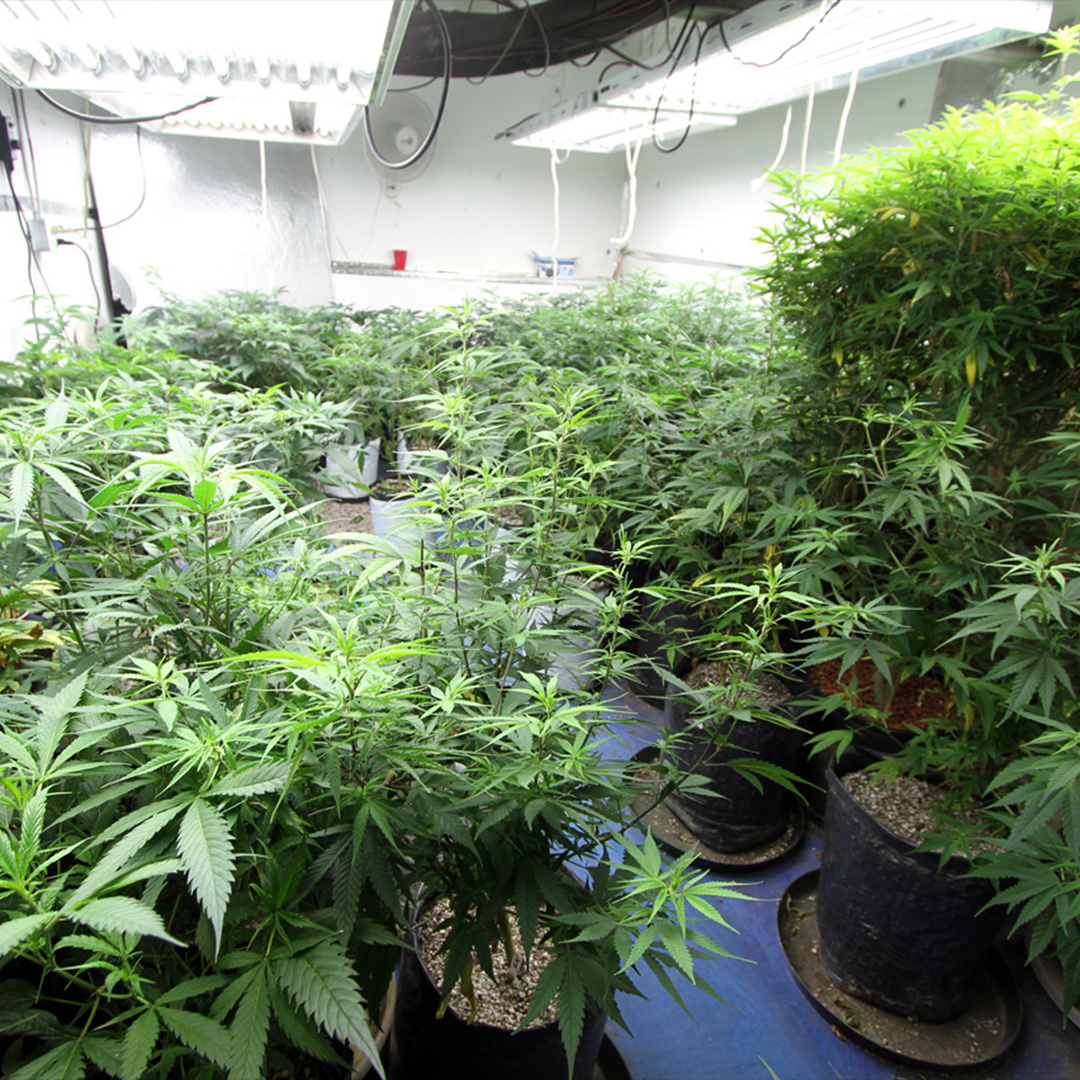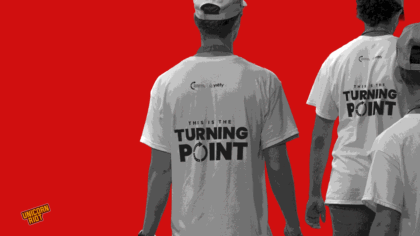South Africa’s Complex New Marijuana Laws Produce Hope, Fear and Confusion
Durban, South Africa — It’s been well over a year since South Africa partially legalized the recreational use of marijuana — more appropriately known as cannabis — becoming the first African country in history to do so. Contrary to the common belief that cannabis use in the country is now completely legalized, in fact, policies on the use and sale of both recreational and medicinal cannabis remain heavily restrictive if allowed at all.
Under the country’s complex new laws, recreational use of cannabis is legally allowed only within a person’s “private premises,” and even then, only a limited amount can be stored on one’s property for personal use. Even if one would like to store and grow their own cannabis on their property legally, obtaining a cannabis plant or seeds for recreational use is nearly impossible since the sale of recreational cannabis is still strictly prohibited.
The sale of cannabis for medical purposes on the other hand has been legal in South Africa since 2017, though the process of legally obtaining a prescription or a license to produce medical cannabis is an exhaustive process, if not virtually impossible. These impediments have not stopped the current cannabis market boom which is currently estimated to be worth billions of dollars and growing.
This ever-expanding semi-legal grey market is also producing large quantities of product that hasn’t undergone any form of safety testing and is thus susceptible to containing traces of various chemicals, and pathogens harmful to human health.
Getting a License to Produce or Use Medical Cannabis in South Africa
There are two distinct compounds found within the cannabis plant that are used for medicinal purposes; the non-psychoactive compound, Cannabidiol (CBD) and the psychoactive compound Tetrahydrocannabinol-9 (THC) — this is the active ingredient contained in cannabis that produces the “high” effect.
Legally obtaining CBD products that contain little to no THC is relatively easy since it’s considered a non-psychoactive medicine, thus not requiring a doctor’s prescription. Getting a prescription to use CBD products that contain more than 0.0075% THC, however, will require a doctor’s prescription as well as approval from the South African Health and Regulatory Products Authority — otherwise known as SAHPRA. These CBD products are classified as Schedule 4 substances under the South African Medicines and Controlled Substances Act.
Medicinal THC products on the other hand are subject to even stricter measures of control and are currently classified as Schedule 6 substances — down from its previous classification as Schedule 7 in 2018. All drugs under Schedule 6 are defined by SAHPRA as substances that “may have a moderate to high potential for abuse or for producing dependence which necessitates close medical management and supervision and strict control over supply.”
Those seeking to use it for personal medical reasons must be suffering from serious medical ailments such as cancer, epilepsy, Parkinson’s disease, etc. Even then, a prospective patient must find a doctor willing to file what’s known as a Section 21 application to SAHPRA on their behalf, authorizing them to use said CBD or THC substance for medical purposes.
The applicant must also pay a R400 — or roughly $25 — application fee and will not be able to recoup those fees if rejected. If approved, the prescription is valid for six months, after which the applicant will need to reapply for continued use. An outcome report is also required to be filled out by the prescribing doctor “no further than 6 months after the approved date otherwise patient[s] will not be eligible for renewal.”
But even if a prospective patient met these requirements, getting that application processed is not a given. SAHPRA has only made the application accessible to complete on its website portal, which as of the writing of this article has been down for well over a month. Unicorn Riot reached out to SAHPRA for comment on this and other questions without response.
Do-It-Yourself Solutions
Rather than wading into the extremely complex, and bureaucratic legal prescription process, many users of medicinal cannabis have instead opted to obtain their own cannabis medicines through DIY means. Kelly Mcque is a cancer survivor who authored a book titled “At Home With Cannabis,” which details her experience of using cannabis — both to treat her cancer and longtime depression. The book also serves as a practical guide on how to “make and use cannabis products effectively at home.”
In her book, Mcque explains that when she was initially diagnosed with breast cancer, doctors advised her to undergo chemotherapy and radiation treatment — otherwise known chemoradiation therapy or CRT — which is a common form of cancer treatment utilizing drugs and radiation to kill cancer cells. CRT also kills healthy cells, producing a host of negative side effects that inspired Mcque to look to other treatment options — more specifically THC cannabis oil.

Though there is somewhat limited data on the relationship between cannabis and cancer, recent lab studies show that at least in some cases THC cannabis can stop cancer cells from growing and even eliminate them altogether while sparring the body’s healthy cells. Mcque says that this information is often withheld from cancer patients because doctors have a financial incentive to sell patients on CRT instead.
“When you get diagnosed with cancer by a doctor, he is going all in on the fear tactics and not just you, but anyone around you […] because what you need to understand is that cancer is an industry like weddings […] like funerals.”
Kelly Mcque
Now determined to defeat cancer using THC cannabis oil without the use of CRT, Kelly states that she began making her own THC cannabis oil. taking increasing dosages of it to compensate for her body’s steadily increasing tolerance to the drug. She also made a series of lifestyle changes including regular exercises and dietary fasting.
Within four months of her cancer diagnosis, Kelly says that the size of the cancerous tumor on her breast had decreased by half, and within eight months the lump had disappeared completely.
Cannabis for Recreational and Spiritual Use
For thousands of years, various communities around the world have been documented using cannabis for spiritual purposes. Xolani Nxumalo is one such longtime user who previously consumed cannabis through smoking. Nxumalo later quit due to the resulting damage on his lungs, made worse by a predisposed respiratory condition that he inherited from his father. He since switched to using edible cannabis products instead. Nxumalo states that the cannabis oil works better for him now since he can still reap the medical and spiritual benefits of cannabis without damaging his lungs through smoke inhalation.
“No side effects. Nothing. Whereas the smoke […] has negative effects […] I always tell people that if I knew [about] edibles I wouldn’t have smoked [cannabis].”
Xolani Nxumalo

While encouraged by the steadily legalization of cannabis, Nxumalo is also wary of the increased commercialization and attempts by big business to cash in on a plant which holds profound cultural importance to him, stating:
“We are dealing with something that’s over centuries old. People have tried to commodify it. Unfortunately, it’s not an industry product. […] we are dealing with something that is not subject [to] the means of production.”
Indeed, various corporations and governments throughout history have attempted to patent certain cannabis strains and monopolize its trade, but have largely failed both due to the ease in which the plant grows and its exceptionally complex and diverse genetic makeup.
Unregulated Cannabis Products Raise Public Health and Safety Concerns
One consequence of the semi-legal and mostly unregulated cannabis market is that much of these products are being sold without having undergone any kind of quality control or basic safety checks. Even in the trailblazing U.S. state of California — where cannabis was first legalized for medical purposes in 1996 — regulatory gaps around recreational cannabis laws has created a similar legal grey market where product safety testing is often not required and not performed.
An L.A times investigation published late last year revealed that much of the cannabis product sold in California is heavily contaminated by a wide range of pesticides, heavy metals, mycotoxins and other elements harmful to human health.
And while established testing measures for legal cannabis products do exist, this doesn’t necessarily mean that these products are any cleaner. Subsequent product testing revealed that of the 45 legal cannabis brands analyzed for contaminants in California, about half contained “hidden pesticides that state regulators do not test for.”
South Africa faces similar issues when it comes to cannabis product safety testing. Unicorn Riot spoke with Brenda Marx from Qure Laboratories based in the Western Cape province — one of the few institutions in South Africa licensed to test cannabis products for various contaminants.

When asked about how often they come across contaminates in the products they analyze, Marx stated that while pesticide and mycotoxins contamination levels were actually “very low,” the “biggest problem is microbials, that is due to handling and storage, moisture content in storage where there’s good conditions for microbial growth, yeasts and molds, bacteria, things like that.”
Marx added that heavy metals are frequently detected during analysis and that “they’re all within the [legally acceptable] limits” but that “they’re everywhere.”
Many brands place labels on their product that claim it’s been inspected by a government sanctioned entity, but Marx warns that customers must “insist on authentic results, not falsified results […] people can put anything on a label and at the moment there’s no regulation and there’s no enforcement.”
In terms of product safety, Marx advises that cannabis users carefully vet their sources of supply by getting to know their dealers and gaining as much information about their grow process as possible. Consumers can also check to see if their product has what’s known as a “certificate of analysis,” or COA for short, which indicates that the product has been inspected and analyzed by a state certified laboratory.
Cannabis Related Arrests and Drug Wars Continue
Despite the somewhat more relaxed approach by South African police in enforcing cannabis laws, the illicit trade is still very much alive. High-profile cannabis drug busts still make headlines and even ordinary growers and consumers have been known to be targeted and arrested by police for relatively minor offenses.
Unicorn Riot spoke with Charl Henning who works for the cannabis advocacy group Fields of Green for ALL, a registered South African nonprofit that aims to “ensure that stakeholders are fully informed about the rights they have and roles they play in enabling an inclusive, equitable, and sustainable Cannabis Sector.”
Henning serves is the organization’s head of victim support and public relations, manning its 24-hour cannabis arrest hotline. When asked about whether police harassment of cannabis growers and users is generally increasing or decreasing since the law change last year, Henning said that “it comes and goes in waves […] There was a time when we had several arrests. They were so frequent that the phone was ringing quite often but at the moment they’re much less and the calls are mostly centered around clubs and shops […] mostly from people that either want to start clubs or shops, or they already have a venue and they want to know what to do to make themselves safe.”

Henning is quick to point out that he isn’t a lawyer, but rather a well informed citizen who offers crucial legal information, informing citizens of their basic rights under the law. He also says that more often than not, people are unaware of even their most basic of legal rights, which can lead to further police abuses. For clubs that get approached by police demanding to search their premises he says that they should always ask to see the warrant[s]:
“The police cannot come into your private space without a warrant [which] must have your name, today’s date and it must be signed by a magistrate [judge], otherwise the warrant is not valid. I’ve [never] seen an arrest with a valid warrant.”
Future Outlook Colored by Shades of Green and Grey
With regards to edible cannabis products, South African Minister of Health, Aaron Motsoaledi signaled that “new draft regulations governing the sale of foods containing cannabis” were incoming.
This announcement came on the heels of the controversial move by his department when it banned edible cannabis products entirely in April. That ban was quickly rescinded after heavy criticism and backlash from activists and major industry players alike, leading to intervention from President Ramaphosa himself on the matter.

One reason for the hesitancy to fully legalize cannabis and the ongoing mixed messages from government may stem from current divides within the wider medical establishment.
On one end, a growing amount of government officials and medical experts are pushing to further legalize cannabis to exploit the drug’s significant untapped commercial, medicinal and industrial potential.
On the other hand, there remains a staunch old guard that still views cannabis as a public health hazard that should rarely be used in treating only the most serious and exceptional of health conditions.
Still, the tide within South Africa and the wider globe appears to be progressively pushing towards full legalization as more people are steadily adopting its use globally. The United Nations 2025 World Drug Report, found that “over 244 million people used cannabis in 2023 making it by far the most widely used illicit drug globally” — this representing a whopping 34% increase in cannabis usage globally over the past decade.
But even if the country does eventually move towards full legalization, advocates warn that cannabis users still need to be aware of the complexities of the cannabis plant and at least some basic understanding of what they are buying, from who, and under what circumstances.
Follow us on X (aka Twitter), Facebook, YouTube, Vimeo, Instagram, Mastodon, Threads, BlueSky and Patreon.
Please consider a tax-deductible donation to help sustain our horizontally-organized, non-profit media organization:



